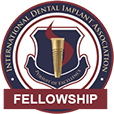The Most Common Causes of Gum Disease
February 19th, 2019

Unless you're aware of the signs and symptoms of gum disease and how it's caused, it's possible that you may have unknowingly developed it. Often painless, gum disease -- or periodontal disease -- becomes progressively more serious when left untreated. As you learn more about the common causes of gum disease, you'll be better-equipped to maintain the best oral health possible.
Gingivitis & Periodontitis: Common Causes of Gum Disease
- Bacteria & Plaque. Bacteria in the mouth creates a sticky film over the teeth. Good hygiene practices help remove the bacteria and the plaque they cause. When plaque is not removed, it develops into a rock-like substance called tartar. This can only be removed by a dental professional.
- Smoking & Tobacco. If you're a smoker or use tobacco, you face a higher risk of developing gum disease. Additionally, tobacco use can lead to stained teeth, bad breath, and an increased risk of oral cancers.
- Certain Medications. Some medications that are taken for other health conditions can increase a person's risk of developing gum disease. If you take steroids, anti-epilepsy drugs, certain cancer therapy medications, or oral contraceptives, speak to Dr. DeCasperis about how to maintain healthy gums.
- Medical Conditions. Certain medical conditions can impact the health of your gums. For instance, diabetics face an increased risk of gum disease due to the inflammatory chemicals present in their bodies. Always talk to our team about other health conditions to ensure we take that into account when treating you.
Take a Proactive Stance
Good oral hygiene practices and regular visits to our Lebanon, NJ office can help you eliminate or reduce the risks of developing gum disease. A thorough cleaning with your toothbrush and dental floss should take about three to five minutes. Brush your teeth a minimum of twice per day and floss at least once each day. Keep these tips in mind and you’ll be ready to prevent gum disease.









